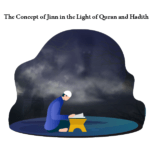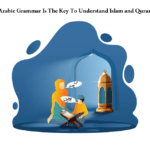HadeesThe Hadith, an integral part of Islamic tradition, refers to the sayings, actions, and approvals of Prophet Muhammad (SAW). It provides a detailed account of the Prophet’s life, teachings, and guidance, serving as a significant source of Islamic knowledge and legislation. Understanding the Hadith is of utmost importance for Muslims worldwide, as it offers insights into the Prophet’s character and exemplifies how to apply Islamic principles in daily life.
Importance of Hadith in Islamic Tradition
It holds a central position in Islamic tradition for several compelling reasons. First and foremost, the Quran, the holy book of Islam, provides the fundamental teachings and principles for Muslims. However, the Quran is not exhaustive in terms of specific guidance on all aspects of life. The Hadees, therefore, complements and expands upon the Quranic teachings by providing practical examples and explanations of the Prophet Muhammad’s application of Islamic principles.
It provides a comprehensive understanding of the Prophet Muhammad’s (SAW) character and his exemplary way of life. Muslims consider the Prophet as the epitome of moral conduct and the perfect role model to emulate. The Hadith narrations offer glimpses into his teachings, virtues, and interactions with others, enabling believers to follow in his footsteps and embody his noble qualities.
History and Background of Hadith
Origin of Hadith and Its Development
It has its roots in the time of Prophet Muhammad in 7th-century Arabia. During the Prophet’s lifetime, his companions closely observed his actions, listened attentively to his words, and sought his approval for various matters. These teachings and practices were initially transmitted orally among the early Muslim community.
Following the death of Prophet Muhammad, the need to preserve his teachings and actions became evident. This led to the systematic collection and documentation of Hadees. The companions of the Prophet, known as the Sahaba, took it upon themselves to meticulously compile and transmit these valuable narrations to future generations.
Role of the Prophet Muhammad in Preserving and Transmitting Hadith
Prophet Muhammad played a crucial role in the preservation and transmission of Hadith. As the final and most authoritative messenger of Allah, he embodied the divine message and exemplified its application in his daily life. The companions, being close to him, had the unique opportunity to observe and learn directly from him.
The Prophet actively encouraged his companions to memorize and transmit his sayings and actions accurately. He emphasized the importance of conveying his teachings precisely, stating, “Whoever intentionally lies about me should take his place in Hellfire” (Sahih al-Bukhari). This reinforced the significance of preserving the Hadees with the utmost integrity.
The companions, renowned for their piety, sincerity, and commitment, meticulously preserved the Hadees through memorization and written documentation. They developed a robust system of Isnad, or chains of narrators, to verify the authenticity of each Hadith. This chain of transmission provided a clear link from the current narrator back to the Prophet Muhammad, ensuring the credibility of the narrations.
Different Collections of Hadith
Over time, numerous collections of Hadees were compiled, each with its unique features and methodology. Some of the most prominent and widely recognized Hadees collections include:
-
Sahih al-Bukhari:
Compiled by Imam al-Bukhari (d. 870 CE), this collection is considered one of the most authentic and comprehensive Hadees compilations. It consists of approximately 7,275 Hadees carefully selected based on stringent criteria.
-
Sahih Muslim:
Compiled by Imam Muslim ibn al-Hajjaj (d. 875 CE), this collection ranks among the most authoritative Hadith compilations. It contains around 7,563 Hadith, chosen based on strict standards of authenticity.
-
Sunan Abu Dawood:
Compiled by Imam Abu Dawood (d. 889 CE), this collection focuses on Hadith related to various aspects of daily life. It contains approximately 4,800 Hadees.
- Jami` at-Tirmidhi:
Compiled by Imam at-Tirmidhi (d. 892 CE), this collection includes a wide range of Hadith categorized under various themes. It consists of around 3,956 Hadees.
These collections, among others, became fundamental references for scholars, providing a wealth of authentic Hadees narrations. They underwent meticulous scrutiny and evaluation by scholars, ensuring their reliability and accuracy.
Methodology of Hadees Studies
In the field of Hadith studies, the methodology revolves around evaluating the authenticity and reliability of Hadees narrations. Two primary aspects considered during this evaluation are the Isnad (chain of narrators) and the Matn (content) of the Hadees.
-
Isnad
It refers to the chain of narrators, a sequence of individuals who transmitted the Hadith from one generation to another. Scholars meticulously analyze the Isnad to verify the credibility and trustworthiness of the narrators. Factors such as their integrity, memory, accuracy, and continuity of transmission are examined to determine the authenticity of the Hadith. A strong and uninterrupted Isnad increases the likelihood of the Hadees being reliable.
-
The Matn
Scholars assess the consistency of the Hadees with the teachings of the Quran and the principles of Islam. They analyze the text for logical coherence, internal consistency, and compatibility with established Islamic knowledge. If the Matn contradicts established Islamic principles or displays signs of fabrication, it raises doubts about the authenticity of the Hadith.
The Role of Scholars and Their Expertise
Hadees scholars, known as Muhaddithun, play a vital role in the evaluation, authentication, and interpretation of Hadees. These scholars possess extensive knowledge of the sciences of Hadith, including the study of narrators, Hadith terminology, and the principles of authentication.
Hadith scholars dedicate years to studying the biographies and characteristics of narrators, scrutinizing the chains of transmission, and analyzing the content of Hadees. They develop expertise in assessing the authenticity and reliability of Hadees narrations, employing various methodologies and criteria.
The expertise of Hadees scholars ensures the preservation of the Prophetic traditions and protects the Muslim community from false or fabricated narrations. Their scholarly contributions include verifying the authenticity of Hadees, identifying weak or forged narrations, compiling collections of Hadees, and producing comprehensive commentaries and explanations of Hadith literature.
Importance of Referring to Primary Hadith Sources
Referring to primary Hadith sources is of utmost importance for the accurate understanding and interpretation of Prophetic traditions. Primary sources, such as Sahih al-Bukhari and Sahih Muslim, are recognized for their rigorous methodology in verifying the authenticity of Hadees narrations.
By referring to these primary sources, individuals can ensure that the Hadees they rely upon for guidance and practice are based on authentic Prophetic traditions. It minimizes the risk of misinformation, misinterpretation, or the incorporation of weak or fabricated narrations into one’s understanding of Islam.
Furthermore, primary Hadees sources provide a comprehensive collection of narrations, covering a wide range of topics and aspects of life. They serve as a rich resource for scholars, researchers, and students, enabling them to delve deep into the Prophetic traditions and extract valuable insights for various areas of study.
In conclusion, the methodology of Hadees studies revolves around evaluating the Isnad and Matn of the narrations. Isnad verifies the credibility of the narrators, while Matn ensures the consistency and compatibility of the Hadith with established Islamic principles. Hadith scholars play a crucial role in authenticating, interpreting, and explaining the Hadith literature. Primary Hadees sources, such as Sahih al-Bukhari and Sahih Muslim, are invaluable references for accurate understanding and practice, ensuring reliance on authentic Prophetic traditions.
Applying in Daily Life
-
Role Islamic Jurisprudence (Fiqh)
It plays a fundamental role in Islamic jurisprudence (Fiqh). Fiqh encompasses the understanding and application of Islamic laws and legal rulings. The Hadith, alongside the Quran, serves as a primary source for deriving legal principles and guidelines.
Islamic scholars meticulously analyze the Hadees to extract legal rulings and derive comprehensive legal frameworks. They employ principles of jurisprudence, such as analogy (Qiyas), consensus (Ijma’), and juristic reasoning (Ijtihad), to apply the teachings of Hadees in specific legal contexts.
-
Examples of Hadith-Based Practices in Personal and Social Life
Hadith-based practices are deeply ingrained in the lives of Muslims, influencing their personal and social conduct. Some examples of Hadith-based practices include:
Rituals and Worship: Hadees provide detailed instructions on acts of worship, such as prayer, fasting, pilgrimage, and charity. Muslims rely on Hadees to understand the specific methods and details of performing these acts by the teachings of the Prophet Muhammad.
Conclusion
In conclusion, it has faced challenges throughout history regarding preservation, authenticity, and interpretation. The historical challenges include issues of preservation, fabrication, and identification of reliable narrations. In contemporary times, debates and discussions revolve around the interpretation and relevance of certain Hadees narrations.
Scholars respond to these challenges by employing rigorous methodologies, conducting historical analysis, and emphasizing contextual interpretation. They seek to address concerns and ensure a balanced understanding and application of Hadith teachings.
Individuals need to seek further knowledge and understanding of Hadees, recognizing the scholarly efforts in preserving and interpreting the Prophetic traditions. A balanced and scholarly approach to Hadith interpretation allows for a nuanced understanding of its teachings, ensuring that the values of justice, compassion, and equality are upheld in light of the evolving realities of the modern world.

















